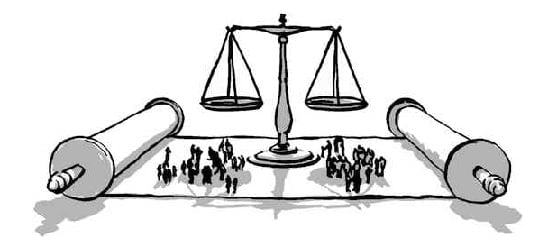Sabbath: Mercy and Justice in Psalms and Proverbs
Read for This Week’s Study: Ps. 9:7-9, Ps. 9:13-20; Ps. 82:1-8; Ps. 101:1-8; Ps. 146:1-10; Prov. 10:4; Prov. 13:23, Prov. 13:25; Prov. 30:7-9.
Memory Text: “Defend the poor and fatherless; do justice to the afflicted and needy. Deliver the poor and needy; free them from the hand of the wicked” (Psalm 82:3-4, NKJV).
Psalms and Proverbs depict the experience of living with God in the common things of life, not just in times of worship or in other religious activities. While the book of Proverbs offers a range of practical wisdom—from relationships and families to business and government—the Psalms are a collection of songs that cover a variety of emotions and spiritual experiences from laments to exultant praise and to everything in between. It is easy to see that our faith should make a difference in every aspect and experience of our lives, because God cares about every aspect of our lives.
Meanwhile, any reflection on life in this fallen world could hardly ignore the injustice that so permeates the human condition. In fact, injustice is repeatedly described as something that our Lord cares about and seeks to relieve. It is He who is the hope of the hopeless.
Though we can only touch on what these books say about this topic, perhaps this lesson might inspire you to be more proactive in ministering to the needs of the poor, the oppressed, and the forgotten who exist all around us and whom we are obligated to help.
Study this week’s lesson to prepare for Sabbath, July 27.


“Ministering to the needs of the poor” is typically interpreted as a call to part with some of our hard-earned cash to an organization who claims it is ministering to the poor. And when that topic comes up, we usually have a conversation about the caveats of such action. Perhaps we should take money out of the picture and ask ourselves, “Who are the poor and needy?”, and “What can I give them that will help them?”
I immediately think of our own church. We are a large church and there seem to be so many people who just come and go within the church environment without any social interaction. We can help simply by learning and using the names of some of these people. Many people feel disenfranchised simply because they are not used in the church scene. A young person not in the clique, a single parent with two restless kids, an older person whose spouse is too ill to come to church. Sometimes I think we pay more attention to visitors than we do to our local members who are taken for granted. All these people are “poor in spirit” and they are within our horizon of influence. They do not need money, but they need inclusion. That is a call on our time. Have we got time to give?
Well said brother.A lot of the time we monetise the spiritual and physical to a point we say “silver and gold we do not have” and look the other side or walk away.
As Christians we have wrong concepts of the poor and the needy. We need to change the approach. We should not just check on material poorness but we do both; material and spiritual needs, then our evangelism process will be easy.
Defend the poor and fatherless
The meaning is not that judgment is to be pronounced in their favor because they are poor, or because they are orphans, for this would be to do what they had just been charged with as in itself wrong, accepting of persons; that is, showing favor on account of condition or rank, rather than on account of a just claim. The idea is, that the poor and the fatherless, having no natural protectors, were likely to be wronged or oppressed; that they had none to defend their claims; and that magistrates, therefore, as if they were their natural protectors, should see that their rights were maintained.
Do justice to the afflicted and needy – See that justice is done them; that they are not wronged by persons of wealth, of power, and of rank. Such care does religion take of those who have no natural guardians. The poor and the needy – the widow and the fatherless – owe to the religion of the Bible a debt which no language can express.
i. “Law has too often been an instrument for vengeance in the hand of unscrupulous men, an instrument as deadly as poison or the dagger. It is for the judge to prevent such villainy.” (Spurgeon)
ii. King Jehoshaphat of Judah gave similar and wise instruction to judges in 2 Chronicles 19:6-7: And said to the judges, “Take heed to what you are doing, for you do not judge for man but for the LORD, who is with you in the judgment. Now therefore, let the fear of the LORD be upon you; take care and do it, for there is no iniquity with the LORD our God, no partiality, nor taking of bribes.”
iii. “It is said of Francis the First, of France, that when a woman kneeled to him to beg justice, he bade her stand up; for, said he, Woman, it is justice that I owe thee, and justice thou shalt have; if thou beg anything of me, let it be mercy.” (Price, cited in Spurgeon)
Miranda Rights in the US is a reflection of fair representation for all who needs a defense.
“You have the right to remain silent. Anything you say can and will be used against you in a court of law. You have the right to an attorney. If you cannot afford an attorney, one will be provided for you. Do you understand the rights I have just read to you? With these rights in mind, do you wish to speak to me?”